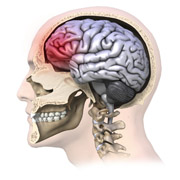Research and Innovation, UNL Office of

Center for Brain, Biology, and Behavior: Faculty Publications
ORCID IDs
0000-0002-8909-9448
0000-0003-4062-3133
Document Type
Article
Date of this Version
2018
Citation
Obesity (2018) 26, S25–S34.
Abstract
Background: The responses to behavioral, pharmacological, or surgical obesity treatments are highly individualized. The Accumulating Data to Optimally Predict obesity Treatment (ADOPT) project provides a framework for how obesity researchers, working collectively, can generate the evidence base needed to guide the development of tailored, and potentially more effective, strategies for obesity treatment. Objectives: The objective of the ADOPT biological domain subgroup is to create a list of high-priority biological measures for weight-loss studies that will advance the understanding of individual variability in response to adult obesity treatments. This list includes measures of body composition, energy homeostasis (energy intake and output), brain structure and function, and biomarkers, as well as biobanking procedures, which could feasibly be included in most, if not all, studies of obesity treatment. The recommended highpriority measures are selected to balance needs for sensitivity, specificity, and/or comprehensiveness with feasibility to achieve a commonality of usage and increase the breadth and impact of obesity research. Significance: The accumulation of data on key biological factors, along with behavioral, psychosocial, and environmental factors, can generate a more precise description of the interplay and synergy among them and their impact on treatment responses, which can ultimately inform the design and delivery of effective, tailored obesity treatments.
Included in
Behavior and Behavior Mechanisms Commons, Nervous System Commons, Other Analytical, Diagnostic and Therapeutic Techniques and Equipment Commons, Other Neuroscience and Neurobiology Commons, Other Psychiatry and Psychology Commons, Rehabilitation and Therapy Commons, Sports Sciences Commons


Comments
© 2018 The Obesity Society
doi:10.1002/oby.22156